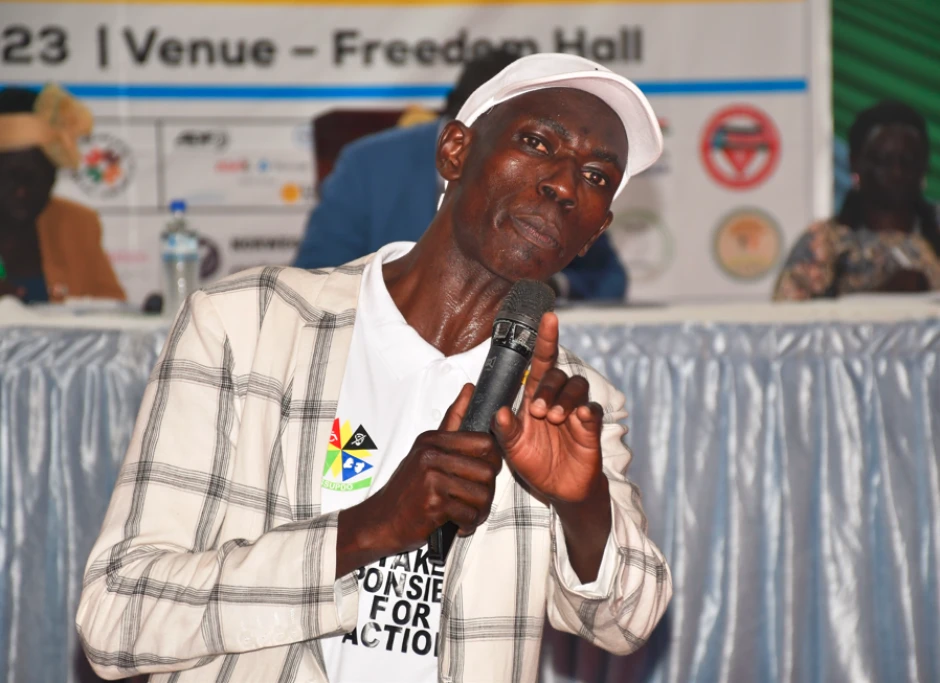
Civil society activist and executive director of CEPO, Edmund Yakani, has called on education authorities to include the American Sign Language (ASL) in South Sudan education curriculum for realization of inclusive education.
Speaking at the launch of the UN Convention on the Rights of Persons with Disabilities on Tuesday in Juba, Yakani said lack of sign language in the education curriculum is a discrimination against persons with hearing problems.
“We realized that the absence of sign language in our curriculum has made our teachers, who are supposed to be people who can educate the society, become discriminative against children with disabilities. So, it’s necessary that sign language becomes part of our learning system,” Yakani argued.
A research by the Light For the World in 2021 could not establish the exact number but found out that in South Sudan, an estimated 3% of the population are deaf or hard-of-hearing.
Yakani also said lack of this course has extended discrimination against persons with special needs to other public institutions such as police and judiciary – an allegation which The Radio Community could not independently verify.
“We have seen cases of police denying investigation into abuses against persons with disabilities. We have seen judges denying taking responsibilities to listen to cases of persons with disabilities because they say they don’t know what the sign interpreter is interpreting,” he claimed.
South Sudan National Inclusive Education Policy 2020 provides for the facilitation of the “creation of an inclusive education system with a conducive, enabling environment for those at risk of exclusion, particularly learners with impairments to have equal access to quality and relevant education and training”.
Whereas, the goal of the National Disability Action Plan is to advance and strengthen the protection of persons/children with disabilities, its main task is to harmonize all action, policies and strategies in areas of protection of Persons With Disabilities to achieve global standard services accessible to Persons with disabilities.
The hearing impaired, Miss Deaf Africa – Josephine Kiden – narrated how she encountered numerous soul breaking challenges after loosing her hearing at the age of 5. Kiden was then introduced to sign language by a group of well-wishers.
“Some group came from Sudan who really helped train me and my parents some few basic of signs language. I failed to speak the way I used to speak before. After that, I was shifted to Gulu School and when I was in Gulu, I encountered a lot of challenges; teachers could not come closer to me because they would just despise me thinking I was nothing,” Kiden narrated.
Kiden experience discriminations both from teachers, pupils and members of the community though at the end, she never up forever.
“When I tried to ask other pupils to help me understand what they have studied, they could not really help me. They would just insult me, saying ‘You are deaf’. I could really feel bad. So, I had to drop out of school. I dropped out of school two times before I decided to go back to complete my studies,” she recalled.
The United Nations Convention on the Rights of Persons with Disabilities (UN-CRPD) was passed by the parliament and assented to by the president in February, 2023, and launched on Tuesday, August 15, 2023.